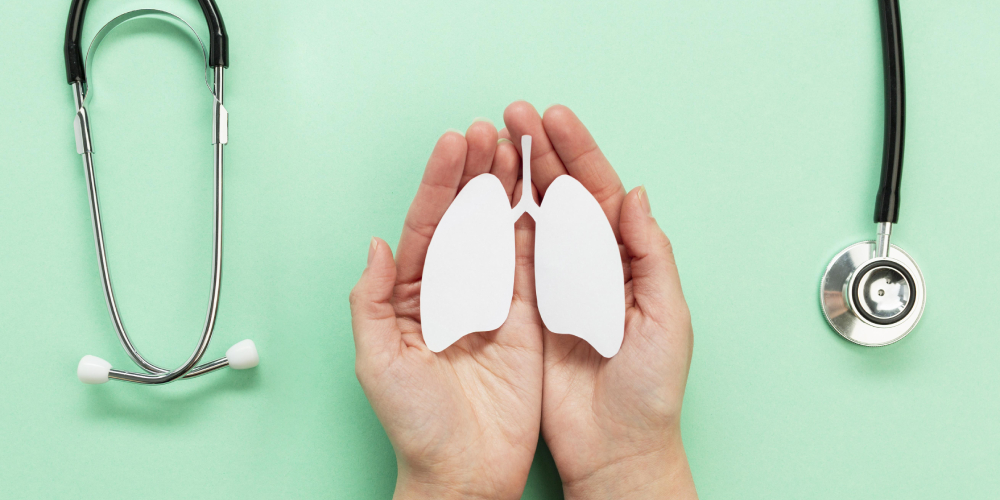
Do Lungs Heal Themselves After Quitting Smoking?
Choosing to quit smoking is one of the most impactful and beneficial decisions you can make to improve your overall health and well-being. This life-changing step not only significantly reduces the risk of developing numerous smoking-related diseases but also enhances your quality of life by boosting your immune system, and increasing your energy levels. Quitting smoking sets the foundation for a healthier future, allowing your body to begin the healing process and repair the damage caused by years of tobacco use. Smoking introduces a host of harmful chemicals into the lungs, leading to inflammation, reduced lung function, and an increased risk of diseases like chronic obstructive pulmonary disease (COPD) and lung cancer. But the question remains: do your lungs heal themselves after you quit smoking? Let’s dive into the science to understand how the lungs recover and what you can do to support their healing process.
The Immediate Benefits of Quitting Smoking
The body starts its healing process almost immediately after you quit smoking. This rapid response is a testament to your body’s resilience. The changes continue over the following hours, days, and weeks:
- 12 Hours After Quitting: The level of carbon monoxide in your blood drops to normal, increasing the oxygen levels.
- 2 Weeks to 3 Months After Quitting: Circulation improves, and lung function begins to increase. This means you will likely find it easier to breathe and engage in physical activities.
- 1 to 9 Months After Quitting: Coughing and shortness of breath decrease. The tiny hair-like structures in your lungs, called cilia, start to regain normal function, helping to clean your lungs and reduce the risk of infection.
Long-Term Lung Recovery
While the immediate benefits are significant, the long-term recovery of your lungs is even more profound. Over the years, your lungs will continue to heal and improve, but the extent of this recovery can vary based on several factors, including the duration and intensity of your smoking habit.
Structural Healing
One of the key aspects of lung healing is the recovery of the Cilia. Cilia are essential for trapping and clearing out mucus, dust, and other particles from the lungs. Smoking damages these structures, but they start to regenerate after quitting. Within months, their function improves, leading to a cleaner, healthier respiratory system.
Lung Function Improvement
Studies have shown that lung function can improve significantly after quitting smoking. The rate of lung function decline slows down, and some lost function can be regained. A study published in the journal “Chest” found that individuals who quit smoking experienced a slower decline in lung function compared to those who continued to smoke. This improvement can be particularly noticeable in activities that require physical exertion, such as exercise.
Reduced Risk of Lung Disease
Quitting smoking dramatically reduces the risk of developing smoking-related lung diseases. The risk of lung cancer, for example, drops by up to 50% within 10 years of quitting. The risk of developing COPD also decreases significantly. While some damage from smoking may be irreversible, stopping smoking prevents further damage and allows the lungs to repair themselves to a certain extent.
Supporting Lung Health After Quitting
While your body has an incredible capacity for healing, there are several steps you can take to support your lungs as they recover from the damage caused by smoking:
Healthy Diet
A balanced diet rich in antioxidants can help support lung health. Foods such as fruits, vegetables, nuts, and seeds provide essential nutrients that promote healing. Specifically, foods high in vitamins C and E, beta-carotene, and omega-3 fatty acids are known to be beneficial for lung health.
Regular Exercise
Engaging in regular physical activity can significantly improve lung function and overall respiratory health. Exercise helps increase lung capacity and strengthens the muscles used for breathing. Aerobic activities such as walking, running, swimming, and cycling are particularly effective.
Hydration
Staying well-hydrated is crucial for maintaining healthy lungs. Adequate hydration helps thin the mucus in your lungs, making it easier to clear out any remaining toxins and irritants. Aim to drink plenty of water throughout the day to keep your respiratory system functioning optimally.
Avoiding Pollutants
Protecting your lungs from further damage is essential. Try to avoid exposure to secondhand smoke, air pollution, and occupational hazards that could harm your respiratory system. Using air purifiers at home and wearing protective masks in polluted environments can help reduce your exposure to harmful particles.
Breathing Exercises
Practicing deep breathing exercises can help improve lung capacity and function. Techniques such as diaphragmatic breathing and pursed-lip breathing can strengthen your respiratory muscles and enhance oxygen exchange. Incorporating these exercises into your daily routine can support your lungs’ recovery.
Medical Check-Ups
Regular medical check-ups are vital for monitoring your lung health after quitting smoking. Your healthcare provider can conduct lung function tests and screenings for lung diseases to ensure that your lungs are healing properly. Early detection of any issues can lead to more effective treatment and better outcomes.
Psychological Benefits of Quitting Smoking
The benefits of quitting smoking extend beyond physical health. The psychological improvements can be just as significant:
Reduced Anxiety and Depression
Many people turn to smoking as a way to cope with stress and anxiety. However, nicotine addiction can exacerbate these conditions. Quitting smoking can lead to reduced anxiety and depression levels over time. A study published in the “British Medical Journal” found that people who quit smoking experienced significant reductions in anxiety, depression, and stress compared to those who continued smoking.
Improved Mental Clarity
Nicotine withdrawal can initially cause cognitive fog, but over time, quitting smoking improves mental clarity and cognitive function. The brain adjusts to the absence of nicotine, leading to better concentration and memory.
Enhanced Quality of Life
Quitting smoking can lead to an overall enhanced quality of life. Improved physical health, better respiratory function, and reduced risk of chronic diseases contribute to a more active and fulfilling lifestyle. The psychological benefits, including improved mood and mental well-being, also play a significant role in enhancing your quality of life.
The journey to lung recovery after quitting smoking is a testament to the human body’s resilience and capacity for healing. While the extent of recovery can vary based on individual factors, the benefits of quitting smoking are undeniable. From immediate improvements in lung function to long-term reductions in disease risk, your lungs begin to heal the moment you put out that last cigarette.
Embarking on the journey to quit smoking is both challenging and immensely rewarding. By understanding the healing process and taking proactive steps to support your lungs, you can look forward to a healthier, smoke-free future. If you’re considering quitting smoking or have already taken the first steps, remember that your body has an incredible capacity for healing, and each day smoke-free brings you closer to optimal health.




